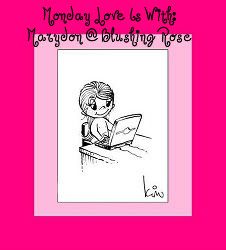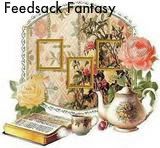
Monopoly History ~ I didn’t know this about the War association to the game …
The Monopoly board game was created in 1933 by Charles Darrow who approached Parker Brothers regarding the marketing of the game. At first, Parker Brothers turned him down but two years later purchased the game from Darrow and today it is one the most popular board games in the world.
Silk maps of Germany, Italy, Norway and Sweden did exist during the Second World War, according to an article written by Debbie Hall for the Map Forum magazine in 1999. Debbie Hall has a special interest in silk maps and was the Map Curator at the British Library where some of these silk maps are displayed.
According to the article, The Waddington PLC company in England manufactured playing cards and game boards including the ones for Monopoly that were marketed in Great Britain. Monopoly games were sent to British prisoners of war in Germany by the International Red Cross. According to Hall, Silk maps of the area were hidden in the games along with special features as a file and a compass made to look like game pieces along with real currency hidden in the monopoly play money to aid the prisoners in escape.
This was not the plan of MI-5 , however, but an idea from another branch of the British secret service. Hall explained that in 1939, the British government had set up an agency designated as MI-9 whose primary mission was to assist resistance fighters behind enemy lines and recover Allied troops being held prisoner. MI-9 developed the military policy of escape and evasion and that it was the "duty of all those captured to try to escape if possible." Hall said, "One man who was behind many of M19's most ingenious plans, including the Waddington project, was Christopher Clayton-Hutton." This agency that assisted prisoners of war to return to England by sending advice and equipment found out that the Waddington company had the technology to print maps on silk and made a special request of the company. Silk maps made no noise, took up very little space and could be folded into a garment or hidden in a package of cigarettes. A tiny compass was also hidden in uniform buttons and used as a tool for escape in case a pilot was shot down behind enemy lines.
Truth or Fiction recently spoke to Bill Knowles, a former Canadian pilot who flew with the RAF on D Day who told us that any escape routes and safe house information were generally memorized by pilots by the time he was flying missions and that no un-coded information would have been printed on anything that could have been intercepted by the enemy as that could have endangered all involved in these types of operations.
The British Official Secrets Act is what bound everybody involved to secrecy and we have sent an inquiry to the Government Communications Headquarters (GCHQ) in the UK to verify if this story has truly been de-classified and no longer confidential.
The Monopoly board game was created in 1933 by Charles Darrow who approached Parker Brothers regarding the marketing of the game. At first, Parker Brothers turned him down but two years later purchased the game from Darrow and today it is one the most popular board games in the world.
Silk maps of Germany, Italy, Norway and Sweden did exist during the Second World War, according to an article written by Debbie Hall for the Map Forum magazine in 1999. Debbie Hall has a special interest in silk maps and was the Map Curator at the British Library where some of these silk maps are displayed.
According to the article, The Waddington PLC company in England manufactured playing cards and game boards including the ones for Monopoly that were marketed in Great Britain. Monopoly games were sent to British prisoners of war in Germany by the International Red Cross. According to Hall, Silk maps of the area were hidden in the games along with special features as a file and a compass made to look like game pieces along with real currency hidden in the monopoly play money to aid the prisoners in escape.
This was not the plan of MI-5 , however, but an idea from another branch of the British secret service. Hall explained that in 1939, the British government had set up an agency designated as MI-9 whose primary mission was to assist resistance fighters behind enemy lines and recover Allied troops being held prisoner. MI-9 developed the military policy of escape and evasion and that it was the "duty of all those captured to try to escape if possible." Hall said, "One man who was behind many of M19's most ingenious plans, including the Waddington project, was Christopher Clayton-Hutton." This agency that assisted prisoners of war to return to England by sending advice and equipment found out that the Waddington company had the technology to print maps on silk and made a special request of the company. Silk maps made no noise, took up very little space and could be folded into a garment or hidden in a package of cigarettes. A tiny compass was also hidden in uniform buttons and used as a tool for escape in case a pilot was shot down behind enemy lines.
Truth or Fiction recently spoke to Bill Knowles, a former Canadian pilot who flew with the RAF on D Day who told us that any escape routes and safe house information were generally memorized by pilots by the time he was flying missions and that no un-coded information would have been printed on anything that could have been intercepted by the enemy as that could have endangered all involved in these types of operations.
The British Official Secrets Act is what bound everybody involved to secrecy and we have sent an inquiry to the Government Communications Headquarters (GCHQ) in the UK to verify if this story has truly been de-classified and no longer confidential.









I had heard something about this a while back. I loved playing Monopoly when I was younger.
ReplyDeleteI can't win at this game for anything. But I like knowing it's history! Thank You!!!
ReplyDeleteI hope you had a very Merry Christmas and you are gearin' up for a wonderful New Year!!!
xoxoxo
robelyn
That is very interesting. Hope you are still having fun with the grand kids and have a very Happy New Year.
ReplyDeleteI love Monopoly too and enjoyed learning of this history. Happy New Year Marydon and family.
ReplyDeleteQMM
I had no idea. Very interesting.
ReplyDeleteHappy New Year!!!!
Melinda
That was really interesting. My family loves Monopoly. You did a lot of research.
ReplyDeleteI never knew that, you are a wealth of information! Thanks for sharing it with me! Have a blessed day my friend! HUGS!
ReplyDeleteThanks for a little bit of Monopoly history... Best wishes for a New Year. Linda
ReplyDeleteVery interesting, Marydon! I didn't know anything about this. :)
ReplyDeleteWhat an interesting history of such a fun and educational game! It is one of my favorites!
ReplyDeleteXO,
Jane
I love coming in here and reading your posts. I always leave with a tid bit of something I never knew!!! So fun. I hope you and yours have a wonderful New Year, Char
ReplyDeleteWhat great fun to find out the history of something that almost everyone has played.
ReplyDeleteHugs - Marie
So interesting, I had no idea. I use to love to play Monopoly when the children were small, we always had fun.
ReplyDeleteI hope you had a fabulous Christmas and I wish for you the most Blessed New Year ever. Thanks for being such a precious friend, and I am so thrilled I got to meet you face to face. A very special treat. Hugs, Marty
Now that is so interesting Marydon! I didn't know anything about that at all! I always loved playing Monopoly when I was a kid. I also found a spin off of Monopoly called Masseyopoly at a thrift store that I bought for my husband for Christmas.
ReplyDeleteHappy New Year!
Angela
Fascinating. I spent infinite hours growing up playing Monopoly and never realized the complete potential of the game. Take care and hugs to you and Harold!
ReplyDeleteHi There, We played Monopoly all of my childhood and even my kids played it. It was always one of my favorite board games. In fact, my parents always told the story that they were the first family in my hometown of Big Stone Gap, VA to get the Monopoly game... My brothers (who were older than me) used to have friends in from all over town to play the game. It was a huge hit in that small down back then.... ha
ReplyDeleteHappy New Year and thanks for stopping by.
Hugs,
Betsy
Wow, I never knew all that about Monopoly. I play it all the time on the computer.
ReplyDeleteI'm glad you like the little gown!
It's been fun getting to know you, Marydon.
I love this game Marydon but I have not played it in awhile. I know it's history now thank you. Happy New Year! big hugs
ReplyDeleteThank you for the history of Monopoly. I always loved to play. I have not in a long time.
ReplyDeleteHappy New Yrear and May God bless,
XXOO Marie Antionette
I had never heard that before, interesting. Thanks for your visit and Happy New Year to you too :D
ReplyDeleteThis was so interesting! Marydon you come up with some great stuff! Thank you for the history lesson. Anne
ReplyDeleteWhat an amazing story! When I consider the layers upon layers upon layers of events...amazing!
ReplyDeleteIt's so true, when an old person dies, a library burns.
What an interesting association.
ReplyDeleteI just played Monopoly with my grandkids a few weeks ago. The 6 year old loved it. That game is timeless!